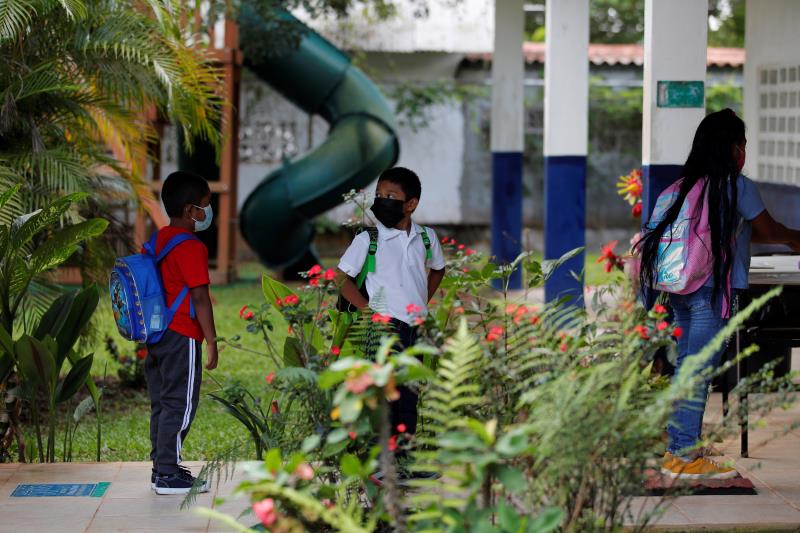Latin America Education Panama
Panama City, November 30 (EFE). Panama is below the average for Latin America and the Caribbean in reading, math and science, subjects where “increasing levels of learning” are needed, as revealed on Tuesday by the Regional Comparative and Explanatory Study (ERCE), published by UNESCO.
“To urgently support students with low levels of performance, Panama faces the challenge of increasing learning levels in reading, math and science,” said the study, which urged the Central American country to “support low-performing students.”
The report explained that there was a “reduction in learning outcomes” in these subjects, when students’ “performance” was compared with the previous study, TERCE 2013.
In Panama, 10,978 minors participated—5,346 from third grade and 5,632 from sixth grade—assessed in 2019 in reading, writing, and math, and in sixth grade science was added.
The results were released by the Latin American Laboratory for Evaluation of Education Quality (LLECE), of the Regional Office for Education for Latin America and the Caribbean (OREALC / UNESCO Santiago).
The study evaluated 160,000 students in Argentina, Brazil, Colombia, Cuba, Costa Rica, Ecuador, El Salvador, Guatemala, Honduras, Mexico, Nicaragua, Paraguay, Panama, Peru, Dominican Republic and Uruguay.
In reading, Panamanian third graders scored 659 points, lower than the regional average of 697 points, while sixth graders scored 652 points, also lower than the 696 points from the rest of the countries. The study showed that in both cycles there were more students at the lowest performance level compared to the previous report.
In terms of mathematics, third and sixth graders also scored lower than the rest of Latin America, with 654 and 645 points respectively, increasing the percentage of students who are lowest in the subject.
In science, a similar situation occurs: sixth graders again get a lower score, 672, than the regional average, 702, and the percentage of minors at first level, 48.1%, is higher than that in the rest of the countries, 37.7%.
The report showed that there were no gender differences in mathematics, although girls in third and sixth grades did better in reading and science (which is only assessed in sixth grade). However, it has been observed that indigenous students get lower results.
“Panama faces the urgent challenge of developing a plan to develop the educational system and strengthen institutions in order to implement the next steps while prioritizing the transition towards more inclusive and equitable education,” said LLECE Laboratory Coordinator, Carlos Henriquez. .
He added that it must also “recognize the importance of gender equality and cultural diversity and to promote educational opportunities so that each student has the learning essential for his or her development.”

“Social media evangelist. Student. Reader. Troublemaker. Typical introvert.”


:quality(85)/cloudfront-us-east-1.images.arcpublishing.com/infobae/VWWQ37HV5ZERLPFWQKUG6JD2CQ.jpg)

:quality(85)/cloudfront-us-east-1.images.arcpublishing.com/infobae/V7GOG2JDGBC4BA6UGMQQ7FRZAM.jpg)


More Stories
The Aragon Institute of Health Sciences will have a health data office
What exercises help reduce the risk of heart disease?
Pablo Achugarry Gallery in the City of Arts and Sciences